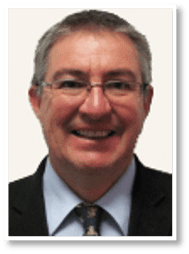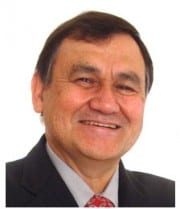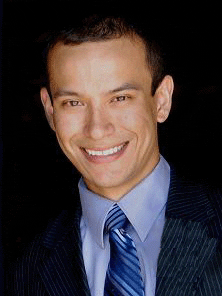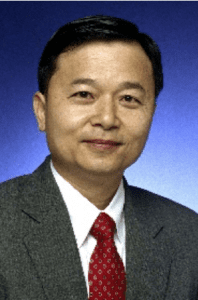INDUSTRY TUTORIALS
TUTORIAL 1: Interconnected Operations benefits and challenges with Increasing Variable Renewable Energy Power Plants in the Southern African Context

Dr Graeme Chown
Director, Chown and Associates
Date: Monday 23rd August, 2021
ABSTRACT:
The tutorial will focus on the benefits and challenges of interconnected operations with increasing variable renewable energy power plants (VRE) in the Southern African context. The tutorial discusses the operating reserve, real time balancing and VRE forecasting challenges with increasing VRE and how interconnected operations assists in mitigating these challenges. The tutorial will cover the benefits of geographical dispersity and sharing of storage facilities. This will allow countries that are endowed with renewable energy resources to meet their own energy requirements using low cost VRE, and provides the potential to export to the rest of the interconnection. One of the new challenges introduced by inverter connected VRE is the reduction of inertia. The tutorial will cover the principles of inertia, rate of change of frequency, the role of synthetic inertia and the potential future role of battery storage provide inertia. The tutorial will conclude with a brief overview on the role of electricity and ancillary service markets with increasing VRE.
BIO:
Dr Graeme Chown has over 35 years’ experience in the electricity industry and is an expert in Electricity Markets, Generation Control and Power System Operations.
Graeme has been a consultant for more 15 years initially with Ricardo and now with Chown and Associates. He was employed by Eskom for 20 years initially in Generation Control and later at System Operations.
TUTORIAL 2: System Operator Simulation

Dr Robin Podmore
IEEE Fellow,
Member NAE,
NERC Certified System Operator.
Date: Tuesday 24th August, 2021
ABSTRACT:
In this tutorial you will have an opportunity to understand power systems from the perspective of a real-time System Operator. You will be able to assess whether you have the aptitude and desire to be a system operator. You will also be better prepared to work with system operators as a power system engineer.
System operators work from control centers using computer consoles and map-boards to manage the reliable delivery of electricity to consumers, businesses and industry. System operators interact over the phone and radio with field crews, general personnel, substation personnel, and other system operators within their own utility and with neighboring utilities. Read more
BIO:
Dr. Robin Podmore has a 50 year career in developing new applications for power system operations and control. He was a founder of ESCA, now GE Grid, in 1979 and led the new business development function. He founded IncSys, in 1990 and was a founding contributor to the IEC Common Information Model. Since the late 1990s he has focused on developing simulation tools and curriculum for training power system operators. He has developed and delivered training for power system trainers and operators throughout USA, Canada, Brazil, Iraq, Ireland, Saudi Arabia, Malaysia, Kenya and Australia. Dr. Podmore has research and developed innovative methods creating Virtual Instructors using the Recognition Primed Decision Model as well the SECI Model of Professor Nonaka. Dr. Podmore is also Co-Founder and Senior Vice President of IEEE Smart Village as well as Founder and President of Rotary E Club of Silicon Valley Smart Village. Dr. Podmore has used his knowledge from founding companies and capacity development to mentor IEEE Smart Village Entrepreneurs in India, Cameroon, Nigeria, South Sudan, Uganda, Rwanda, Kenya, Malawi and Zambia.
TUTORIAL 3: Fundamentals of Off-Grid Electricity Access

Dr. Henry Louie
Professor,
Department of Electrical and Computer Engineering,
Seattle University
Date: Wednesday 25th August, 2021
ABSTRACT:
This tutorial covers the contextual, technical, and practical implementation aspects of off-grid electrical systems in developing countries. These off-grid systems include mini-grids, micro-grids, energy kiosks, solar home systems and solar lanterns. System architectures and components, including small scale solar, wind, hydro, biomass and conventional generation sets, batteries and converters are covered. The mini/micro-grid design process is discussed. Pre-implementation best practices, including site assessment and considerations for business model development are discussed. The instructor draws upon his firsthand experience and contemporary research to provide attendees with the foundational knowledge needed to implement or study off-grid systems. The tutorial is based on the book “Off-Grid Electrical Systems in Developing Countries”.
BIO:
Dr. Henry Louie received his PhD in Electrical Engineering from the University of Washington in 2008. He is a Professor in the Department of Electrical and Computer Engineering at Seattle University. In 2015 Dr. Louie was Fulbright Scholar to Copperbelt University in Kitwe, Zambia. He is the President and Co-founder of KiloWatts for Humanity, a non-profit organization providing off-grid electricity access and business opportunities in sub-Saharan Africa. Dr. Louie is an Associate Editor for Energy for Sustainable Development. Dr. Louie is recognized as an IEEE Distinguished Lecturer for his expertise on energy poverty. He is a Senior Member of the IEEE and was a registered professional engineer in Zambia. He is the Chair of the IEEE PES/IAS PowerAfrica Steering Committee.
TUTORIAL 4: Arc Flash Hazard and Electrical Safety

Professor Wei-Jen Lee
Director and Professor,
Energy Systems Research Center,
University of Texas at Arlington.
Date: Friday 27th August, 2021
ABSTRACT:
Introduction to the 2018 Edition of IEEE Std. 1584-2018: Guide for Performing Arc-Flash Hazard Calculations
Though electrical incidents represent a relatively small percentage of all work-related incidents, they are disproportionately fatal. In the case of burn injury, it may result in extended hospitalization and rehabilitation. Proper protection is the key to reduce casualties during these incidents. IEEE 1584 and NFPA 70E are developed to protect the safety of the workers.
For better understanding of the arc flash phenomena, the IEEE and the NFPA (National Fire Protection Association) have joined forces on an initiative to fund and support research and testing to improve the understanding of arc flashes. The results of this collaborative project will provide information that will be used to improve electrical safety standards, predict the hazards associated with arcing faults and accompanying arc blasts, and provide practical safeguards for employees in the workplace. The identified areas include but are not limited to: 1) Heat and Thermal Effects, 2) Blast Pressure, 3) Sound, and 4) Light intensity.
This presentation will cover the heat and thermal related arc flash hazards. It will include the basic understanding of the arc flash, performing the arcing current and incident energy estimation, and brief introduction to newly released IEEE Std. 1584 – 2018, IEEE Guide for Performing Arc-Flash Hazard Calculations.
BIO:
Professor Lee received the B.S. and M.S. degrees from National Taiwan University, Taipei, Taiwan, and the PhD degree from the University of Texas at Arlington, in 1978, 1980, and 1985, respectively, all in Electrical Engineering.
In 1986, he joined the University of Texas at Arlington, where he is currently a professor of the Electrical Engineering Department and the director of the Energy Systems Research Center.
He has been involved in the revision of IEEE Std. 141, 339, 551, 739, 1584, 3002.8, and 3002.9 development. He is the President of the IEEE Industry Application Society (IAS) and an editor of IEEE Transactions on Industry Applications and IAS Magazine. He is a member of IEEE Fellow Committee. He is the project manager of IEEE/NFPA Collaboration on Arc Flash Phenomena Research Project.
Prof. Lee has been involved in research on Utility Deregulation, Renewable Energy, Arc Flash Hazards and Electrical Safety, Smart Grid, MicroGrid, Industrial Internet of Things (IIoT) and Virtual Power Plants (VPP), AI for Load, Price, and Wind Capacity Forecasting, Power Quality, Distribution Automation, Demand Response, Power Systems Analysis, Short Circuit Analysis and Relay Coordination, Distributed Energy Resources, Energy Storage System, PEV Charging Infrastructure Design, AMI and Big Data, On Line Real Time Equipment Diagnostic and Prognostic System, and Microcomputer Based Instrument for Power Systems Monitoring, Measurement, Control, and Protection.
He has served as the primary investigator (PI) or Co-PI of over one hundred funded research projects with the total amount exceed US$12 million dollars. He has published more than one hundred and ninety journal papers and three hundred conference proceedings. He has provided on-site training courses for power engineers in Panama, China, Taiwan, Korea, Saudi Arabia, Thailand, and Singapore. He has refereed numerous technical papers for IEEE, IET, and other professional organizations.
Prof. Lee is a Fellow of IEEE and registered Professional Engineer in the State of Texas.

